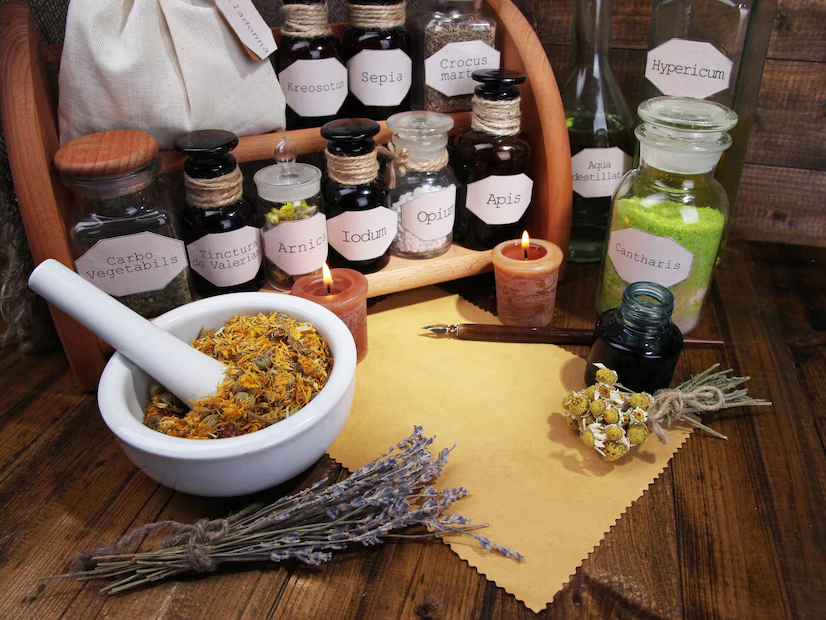Botswana is home to a diverse range of indigenous plants with healing properties that have been used in traditional medicine for generations. With the rising global demand for natural health solutions, herbal medicine is fast becoming a promising business opportunity in the country. Entrepreneurs looking to tap into this growing market can leverage Botswana’s rich biodiversity and traditional knowledge to create sustainable and profitable herbal medicine ventures.
Here’s a detailed guide on how to start a herbal medicine business using Botswana’s native medicinal plants.
Understanding the Market Potential
The global herbal medicine market is projected to reach billions of dollars in value, with consumers turning to natural remedies for chronic illnesses, immunity boosting, skincare, and mental wellness. In Botswana, there is also increasing local interest in alternative medicine, especially in rural areas where traditional remedies remain a first line of treatment.
Starting a herbal medicine business allows you to blend traditional healing knowledge with modern business practices, while promoting biodiversity conservation and cultural heritage.
Step 1: Identify Profitable Medicinal Plants in Botswana
Several indigenous plants in Botswana have known therapeutic properties. Some of the most commonly used include:
- Hoodia gordonii – Traditionally used as an appetite suppressant.
- Devil’s Claw (Harpagophytum procumbens) – Known for its anti-inflammatory and pain relief benefits.
- Sutherlandia frutescens (Cancer bush) – Used to boost the immune system and treat various ailments.
- Moringa oleifera – Rich in nutrients and antioxidants, widely used for overall wellness.
- Aloe ferox – Commonly used for skin care, digestion, and detox.
Research and consult with local herbalists or ethnobotanists to understand the medicinal uses, preparation methods, and market potential of these plants.
Step 2: Conduct Market Research and Develop a Product Range
Determine what kind of herbal products are most in demand—whether it’s teas, capsules, tinctures, ointments, or skincare products. Survey potential customers, health shops, and wellness stores to find out what products they’re interested in.
From there, develop a product line based on one or more of the following:
- Herbal teas for digestion, stress relief, or immunity.
- Skincare products using aloe or moringa.
- Pain relief balms made from Devil’s Claw.
- Dietary supplements or energy boosters.
Ensure your product formulations are safe and meet local health standards.
Step 3: Secure Permits and Comply with Regulations
To run a legal herbal medicine business in Botswana, you need to:
- Register your business with the Companies and Intellectual Property Authority (CIPA).
- Obtain a trading license from your local council.
- Get product approval from the Botswana Medicines Regulatory Authority (BoMRA), especially for any products claiming medicinal benefits.
- Apply for harvesting permits if sourcing medicinal plants from the wild, in line with the Environmental Assessment Act and biodiversity conservation policies.
You may also need certification for good manufacturing practices (GMP) if you plan to export.
Step 4: Source and Process Your Raw Materials
You can either harvest plants sustainably from the wild, grow them on your own farm, or partner with local communities for ethical sourcing. It’s important to follow sustainable harvesting practices to protect endangered species and preserve ecosystems.
Processing involves drying, grinding, extracting, or infusing the plants depending on the product type. Investing in basic processing equipment like dehydrators, grinders, and extractors can help ensure product consistency and quality.
Step 5: Branding and Packaging
The herbal market is competitive, so effective branding is key. Your brand should highlight:
- The natural and organic nature of your products.
- Ethical sourcing and sustainability.
- Traditional healing knowledge combined with modern science.
Use eco-friendly packaging and clear labelling that includes ingredients, dosage instructions, expiry dates, and health disclaimers.
Step 6: Develop a Sales and Distribution Strategy
You can sell your products through:
- Health and wellness stores
- Local pharmacies and supermarkets
- Farmers markets and expos
- Online platforms like Facebook Marketplace, Instagram, or a dedicated website
- Partnerships with spas, naturopaths, and herbal clinics
Offering educational content and workshops about the benefits of traditional medicine can help build trust and grow your customer base.
Step 7: Build Trust through Certifications and Partnerships
To grow your credibility and access broader markets, consider:
- Partnering with research institutions like the University of Botswana for product validation.
- Getting organic or fair trade certifications.
- Joining networks such as the Traditional Health Practitioners Association.
These steps not only boost customer confidence but also open doors to funding and export opportunities.
Starting a herbal medicine business in Botswana is more than a commercial venture—it’s a way to preserve indigenous knowledge, promote health and wellness, and create local economic opportunities. With the right mix of research, planning, and regulatory compliance, you can build a thriving business rooted in the power of Botswana’s medicinal plants.










